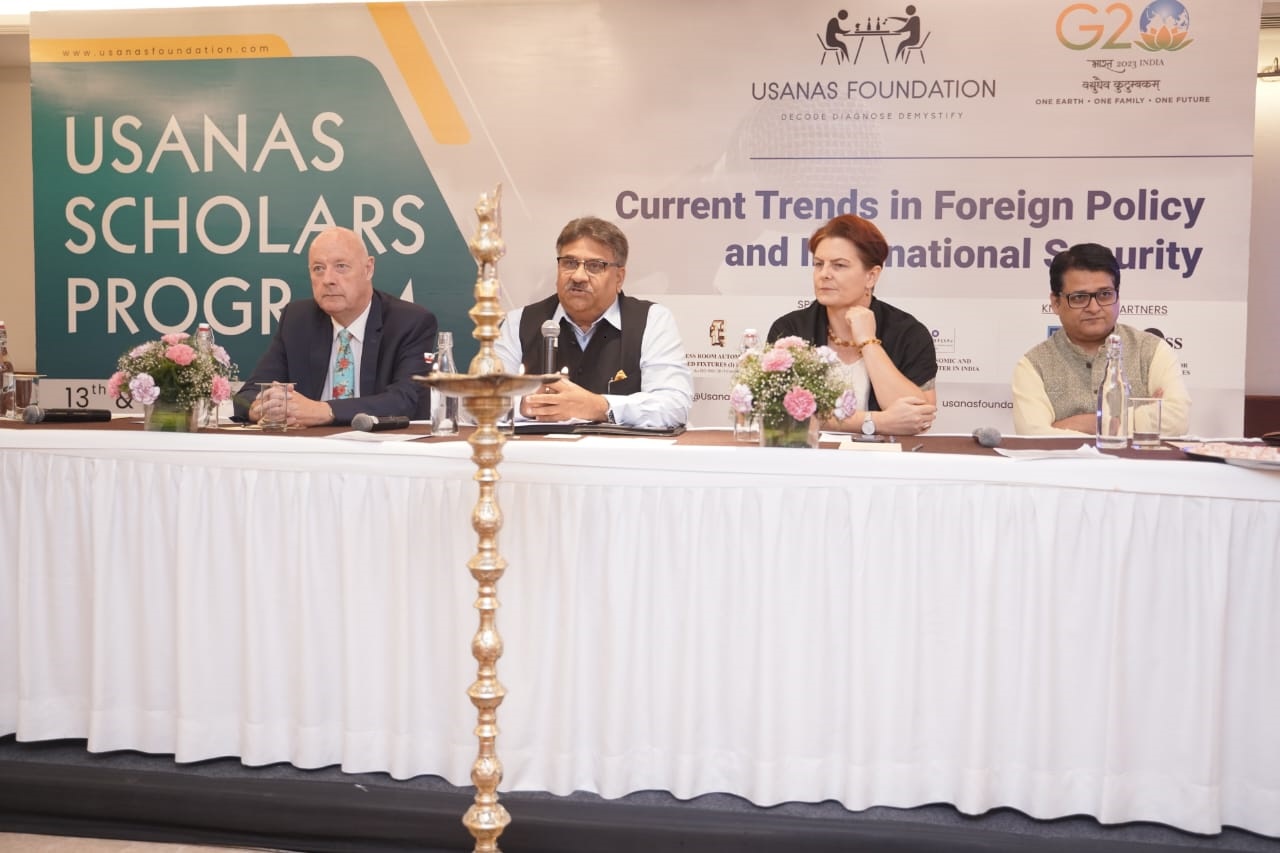New Delhi
The Usanas Foundation launched the first edition of the Usanas Scholars Program on 13 and 14 September, at India Habitat Centre in New Delhi. The two-day workshop was themed “Current Trends in Foreign Policy and International Security”. Scholars participated in training modules on a wide range of themes, including Global Intelligence, Influence Operations, the Rise of Global South, India’s Strategic Thought and Culture, among others.
On day one, Ambassador Sanjay Verma, in his keynote speech highlighted the priorities of India’s foreign policy in the current global scenario and the resurgence of the identities of global superpowers. China’s undeniable rise, Verma said, was positive at times but has mostly had adverse effects. The Ambassador also lauded the success of the G20 summit and said that Indians are “finally being heard by the world”.
Dr Abhinav Pandya, founder and CEO of Usanas Foundation, said the program was a novel attempt aimed at taking discussions and dialogues on security challenges beyond Delhi. These not only fall under the purview of officials but also affect citizens in some capacity, he said. He stressed the need for India to “create its own narrative”.
A panel discussion titled “India and the New World Order” was chaired by Ambassador Anil Trigunayat. The panel of diplomats including Lithuanian Ambassador Diana Mickeviciene, Danish Ambassador Freddy Svane, and Dr Harsh Pant. Svane highlighted India’s between his two tenures, with progress in fields like digitalisation, etc. Mickeviciene, meanwhile was very vocal about China’s “bullying nature”. Dr Pant emphasised the importance of cultivating a healthy academic culture in India.
Other speakers included Dr Sriparna Pathak, Dr Mumin Chen, Kabir Taneja, Tanmoy Chakraborty, and Namrita Hasija.
The second day commenced with a discussion on India’s Strategic Thought, facilitated by Dr Adil Rasheed’s. He discussed the strategic culture of various countries and how they’re related to their historical traditions and thinkers. He also did a comparative analysis of the strategic culture of India as well as that of the Western civilisation.
Shiv Murari Sahai engaged with participants over World Intelligence and Counter Intelligence
Dr Srikanth Kondapalli highlighted the various aspects of China’s strategic thinking including the the Middle Kingdom syndrome, the Spring and Autumn period, and Sun Tzu’s philosophy of deception that is often seen in contemporary Chinese decision making. Finally, he discussed Sino-centrism, the Great Wall syndrome, and Deng Xiaoping’s idea of ‘keeping a low profile’.

